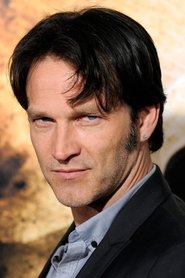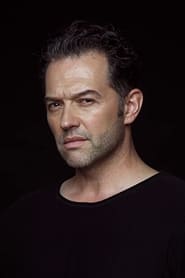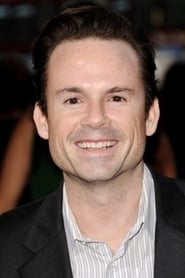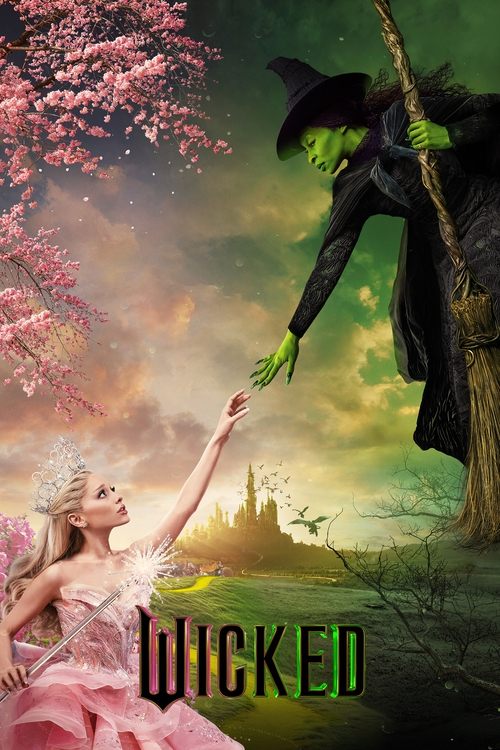
Ask Your Own Question
What is the plot?
Sorry, we aren't able to watch and write up a full detailed plot yet. Check back in a few days.
What is the ending?
In the ending of "After Ever Happy," Tessa and Hardin face the consequences of their tumultuous relationship. After a series of revelations and emotional confrontations, they ultimately part ways, realizing that their love, while intense, may not be enough to overcome their individual struggles and the baggage they carry. Tessa decides to focus on her own growth and future, while Hardin is left to confront his demons alone.
As the film approaches its conclusion, the tension between Tessa and Hardin escalates. The scene opens with Tessa grappling with the fallout from Hardin's past actions, particularly the revelation about his family and the secrets that have haunted him. She feels a mix of anger and sadness, torn between her love for him and the realization that their relationship is fraught with pain.
In a pivotal moment, Tessa confronts Hardin about his behavior and the impact it has had on her life. The emotional weight of their conversations is palpable, as both characters reveal their vulnerabilities. Tessa expresses her desire to break free from the cycle of toxicity that has defined their relationship. Hardin, on the other hand, is desperate to hold onto her, showcasing his fear of abandonment and his struggle with his own identity.
As they navigate this emotional landscape, Tessa makes the difficult decision to leave Hardin. The scene is charged with tension, as both characters are visibly shaken. Tessa's tears reflect her heartbreak, while Hardin's frustration and despair are evident. They share a final, poignant moment where they acknowledge the love they have for each other, but also the reality that they need to prioritize their own well-being.
In the aftermath of their separation, Tessa embarks on a journey of self-discovery. She focuses on her career and personal growth, symbolizing her commitment to moving forward. The film captures her determination as she takes steps to build a life independent of Hardin, showcasing her resilience and strength.
Meanwhile, Hardin is left to confront his own demons. The final scenes depict him grappling with the consequences of his actions and the loneliness that follows Tessa's departure. He is shown reflecting on his past, hinting at a desire for change, but also the uncertainty of whether he can truly overcome his struggles.
The film concludes with a sense of bittersweet resolution. Tessa and Hardin's paths diverge, but the impact of their love story lingers. Tessa's journey towards self-empowerment and Hardin's introspection serve as a testament to the complexities of love, growth, and the importance of healing. The ending leaves viewers with a sense of hope for both characters, despite the challenges they face ahead.
Is there a post-credit scene?
Yes, "After Ever Happy" features a post-credit scene that adds an intriguing layer to the story.
As the credits roll, the scene opens with a serene view of a beach at sunset, the waves gently lapping at the shore. The camera pans to reveal Tessa, played by Josephine Langford, standing alone, gazing out at the horizon. Her expression is a mix of contemplation and longing, reflecting the emotional turmoil she has experienced throughout the film.
Suddenly, the sound of footsteps interrupts her solitude. The camera shifts to show Hardin, portrayed by Hero Fiennes Tiffin, approaching her. His demeanor is more relaxed than in previous scenes, suggesting a moment of vulnerability. As he reaches Tessa, there's a palpable tension in the air, filled with unspoken words and unresolved feelings.
Hardin takes a deep breath, and the weight of their tumultuous relationship hangs heavily between them. He reaches for her hand, and Tessa looks up, her eyes filled with a mixture of hope and uncertainty. The scene captures the essence of their complicated love story, hinting at the possibility of reconciliation and growth.
The moment is brief but powerful, leaving viewers with a sense of anticipation for what lies ahead in their journey. The screen fades to black, and the film concludes, leaving the audience pondering the future of Tessa and Hardin's relationship.
What challenges do Tessa and Hardin face in their relationship in After Ever Happy?
In After Ever Happy, Tessa and Hardin face numerous challenges that test their relationship. Tessa grapples with her identity and future, feeling torn between her love for Hardin and her desire for independence. Hardin, on the other hand, struggles with his past traumas and insecurities, which often lead to impulsive decisions that jeopardize their relationship. The revelation of family secrets and the impact of their respective backgrounds create tension, forcing them to confront their emotional baggage and the possibility of losing each other.
How does Tessa's relationship with her father evolve throughout the film?
Tessa's relationship with her father is strained and complex in After Ever Happy. Initially, she feels resentment towards him for his past mistakes and absence in her life. As the story progresses, Tessa confronts her father, leading to emotional exchanges that reveal her longing for closure and understanding. This confrontation allows Tessa to begin healing and to redefine her relationship with her father, ultimately impacting her sense of self and her relationship with Hardin.
What role does Hardin's family history play in his character development?
Hardin's family history is pivotal to his character development in After Ever Happy. The film delves into his troubled upbringing, revealing the emotional scars left by his parents' tumultuous relationship. This background informs Hardin's fear of intimacy and commitment, as he grapples with the notion of love being synonymous with pain. As he confronts these issues, Hardin's journey towards self-acceptance and vulnerability becomes a central theme, influencing his interactions with Tessa and his growth as a person.
What significant event occurs during Tessa's job interview, and how does it affect her?
During Tessa's job interview in After Ever Happy, she faces a pivotal moment that tests her confidence and resolve. The interview is fraught with tension as she struggles to present herself professionally while dealing with her emotional turmoil regarding Hardin. When she is unexpectedly confronted with questions about her personal life, it forces Tessa to reflect on her choices and the impact of her relationship with Hardin. This event serves as a catalyst for her to reassess her priorities and aspirations, ultimately influencing her decisions moving forward.
How does the theme of forgiveness manifest in Tessa and Hardin's relationship?
Forgiveness is a recurring theme in Tessa and Hardin's relationship in After Ever Happy. Throughout the film, both characters make mistakes that hurt each other deeply, leading to moments of betrayal and heartbreak. However, as they navigate their tumultuous journey, they are faced with the choice to forgive one another. Tessa's ability to forgive Hardin for his past actions, particularly when he reveals his vulnerabilities, highlights her growth and understanding of love. Conversely, Hardin's struggle to forgive himself for his past mistakes becomes a significant hurdle in their relationship, showcasing the complexities of love and redemption.
Is this family friendly?
"After Ever Happy," produced in 2022, is not considered family-friendly due to its mature themes and content. Here are some potentially objectionable or upsetting aspects that may occur for children or sensitive viewers:
-
Intense Romantic Relationships: The film explores complex and tumultuous romantic relationships, including themes of love, betrayal, and emotional turmoil, which may be difficult for younger audiences to understand.
-
Sexual Content: There are scenes that depict sexual situations and intimacy, which may not be appropriate for children.
-
Substance Use: The film includes instances of alcohol consumption and references to partying, which could be concerning for younger viewers.
-
Emotional Distress: Characters experience significant emotional struggles, including heartbreak, family conflict, and personal crises, which may be upsetting for sensitive viewers.
-
Violence and Conflict: There are moments of confrontation and tension between characters that could be distressing.
-
Themes of Loss and Grief: The narrative touches on themes of loss, which may resonate deeply and evoke strong emotions.
Overall, the film's content is geared towards a mature audience, and parental discretion is advised for younger viewers.












































